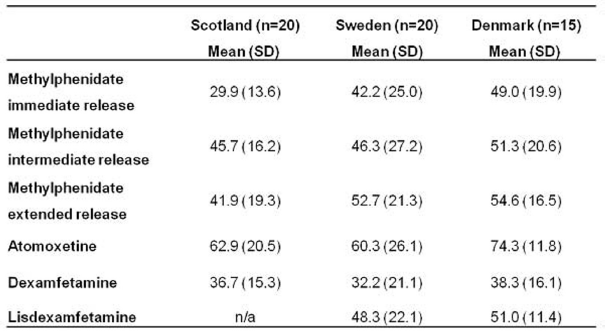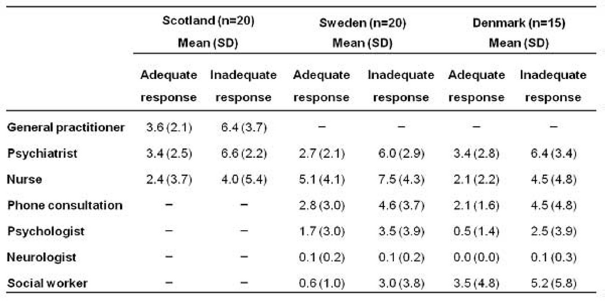No CrossRef data available.
Published online by Cambridge University Press: 15 April 2020
Non-drug-related healthcare resource use represents an under-investigated contribution to the total healthcare cost of adult patients with attention-deficit/hyperactivity disorder (ADHD).
To assess non-drug healthcare resource use in adult patients with ADHD undergoing pharmacotherapy.
Practising psychiatrists in Scotland, Sweden and Denmark were invited from a healthcare professional database to complete an online survey between January and August 2014. Resource use estimations were based on typical adult patients (≥18 years) diagnosed with ADHD and showing either adequate or inadequate responses to ADHD medication.
Participating psychiatrists in Scotland (n=20), Sweden (n=20) and Denmark (n=15) saw a mean (standard deviation [SD]) of 10.3 (8.2), 17.8 (12.7) and 16.9 (16.5) adult patients with ADHD per month, respectively. Methylphenidate was the most commonly utilised first-line medication (74% of psychiatrists). Tables 1 and 2 show mean prescribed daily drug doses and resource use estimates.
Findings suggest that patients with an inadequate response to pharmacotherapy consume more non-drug healthcare resources than those with an adequate response. Whilst limited in sample size, this study provides initial data on non-drug healthcare resource use in adult ADHD. Table 1.
 |
Table 2.
 |
Comments
No Comments have been published for this article.